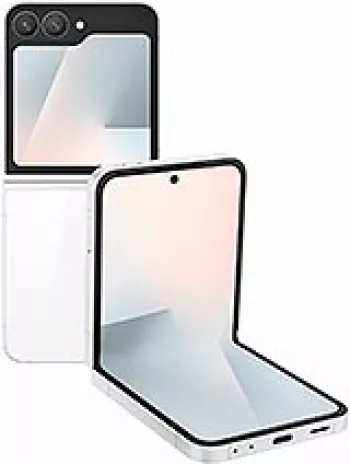
Overview of Samsung P200
The Samsung P200, announced in July 2006 and later discontinued, represents a period where feature phones were transitioning into more advanced functionalities. As a feature phone, it was designed to cater to basic communication needs while also integrating some advanced functions for its time. The phone was somewhat popular due to its moderate specs and capabilities, which appealed to users who wanted a reliable communication device without the complexities and costs associated with smartphones.
Network Capabilities
The Samsung P200 was equipped with GSM technology supporting 2G bands specifically GSM 900, 1800, and 1900. It featured GPRS Class 10 and EDGE, allowing for data transmission albeit at much slower speeds compared to current standards. This setup ensured that the device could handle basic data services, suitable for email and simple web browsing via the WAP 2.0/xHTML browser.
Design and Build
In terms of design, the Samsung P200 was compact, measuring 95 x 44 x 22.5 mm and weighing approximately 95 grams. The phone's size and lightweight build made it easy to carry around. It featured a Mini-SIM, standard for mobile phones during that era, allowing users to connect to mobile networks seamlessly. The black finish was sleek and classic, ensuring the phone was aesthetically pleasing while maintaining a professional look.
Display Characteristics
The display of the Samsung P200 was a 1.9-inch TFT screen capable of displaying 256K colors. Despite the relatively small screen size with a resolution of 176 x 220 pixels, the phone managed a decent pixel density of approximately 148 ppi. This display was quite standard for feature phones at the time and was sufficient for viewing contacts, text messages, and basic images.
Camera Functionality
Equipped with a 1.3 MP main camera, the Samsung P200 could capture basic photos. While the camera cannot be compared to today's standards, it provided users an option to take quick shots. Video recording was available at QCIF quality, allowing for recording short video clips but nothing extensive or of significant quality.
Storage and Memory
The Samsung P200 featured 80MB of internal storage, which was fairly adequate for saving contacts, messages, and a limited number of media files. However, it did not support expandable storage solutions like a microSD card slot, which would have been a limitation for users wanting more storage. The phonebook could hold up to 1000 entries with the feature of photo call, and call records could log details of 20 dialed, received, and missed calls each.
Sound and Multimedia
Regarding audio capabilities, the Samsung P200 did not have a loudspeaker or a 3.5mm jack, restricting its audio output to the built-in earpiece. It supported vibration alerts along with downloadable polyphonic and MP3 ringtones. The lack of a loudspeaker and standard headphone jack limited the phone's multimedia experience significantly.
Connectivity Options
The connectivity options on the Samsung P200 were basic but included a few notable features for a phone of that period. It supplied Wi-Fi 802.11 b/g connectivity which was a significant advantage, allowing for internet access without relying solely on cellular data. However, it didn't support Bluetooth, limiting wireless connection options for file transfers. Additionally, there was no built-in radio or GPS capabilities.
Additional Features
As a feature phone, the Samsung P200 supported various messaging formats, including SMS, EMS, MMS, and Email. It offered several pre-installed games such as "Forgotten Warrior", "Freekick", and "Arch Angel", with the opportunity to download more. The phone supported Java with MIDP 2.0, allowing users to install Java-based applications to add additional functionality.
Battery Life
The Samsung P200 housed a removable Li-Ion 800 mAh battery. The battery life was quite solid for typical feature phone standards, offering up to 215 hours of standby time and up to 8 hours of talk time. This battery performance ensured that the phone could last a full day without needing frequent recharging, which was a valued trait particularly for users relying on their phones for communication throughout the day.
Conclusion
In conclusion, the Samsung P200 was a representation of mid-2000s feature phones, offering basic, reliable communication tools with a few additional functionalities that set it apart slightly from more basic models. Although it lacked high-end features and capabilities that have become standard in today's mobile phones, it served its purpose well at the time of its release. While now discontinued, the Samsung P200 remains a reminder of the era that bridged basic mobile phones to the smartphones of today.
Main Features of Samsung P200
- Network Technology: GSM
- Compact Dimensions: 95 x 44 x 22.5 mm, Weight: 95 g
- Display: 1.9 inches TFT, 256K colors
- Internal Memory: 80MB
- Phonebook: 1000 entries with Photo call
- Main Camera: 1.3 MP
- Connectivity: Wi-Fi 802.11 b/g, UMA
- Messaging: SMS, EMS, MMS, Email
- Java Support: Yes, MIDP 2.0
- Battery Life: Up to 8 hours talk time
Disadvantages of Samsung P200
- Lacks 3G or 4G network support, only GSM available.
- No memory card slot for expandable storage.
- No loudspeaker option available.
- No 3.5mm audio jack for headphones.
- No Bluetooth support for wireless connectivity.
- Lacks GPS functionality.
- No FM radio feature.
- Limited internal memory of 80MB.
- Basic 1.3 MP main camera with low video recording resolution (QCIF).
- No front selfie camera available.
- Discontinued model, leading to possible unavailability of support and parts.

View Also
More Phones
All Rights Reserved +14266 Phones © Mobilawy 2025

























